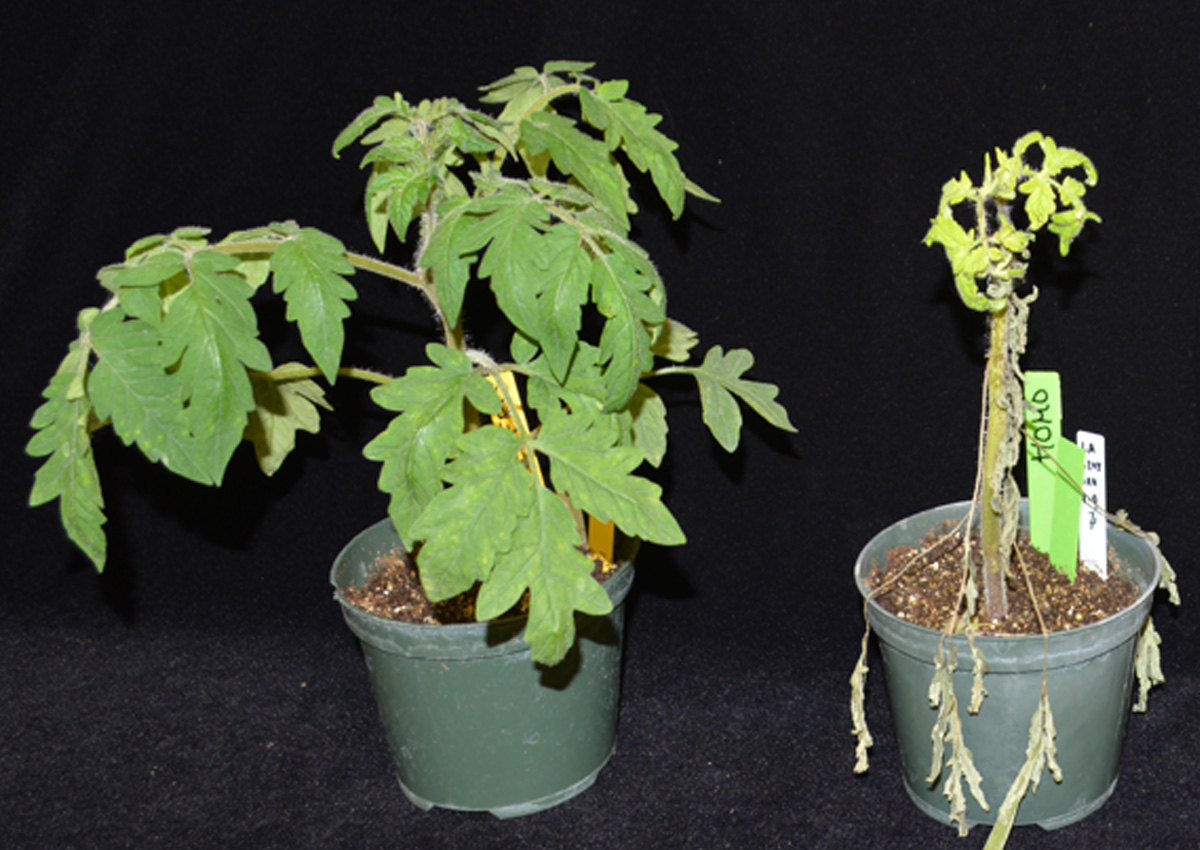
Scientists Discover First Known Gene to Impart Resistance to Speck Disease of Tomatoes
September 2, 2020| |
Bacterial speck disease has reduced fruit yield and quality of tomatoes over the last few years. Pseudomonas syringae, the bacterium causing the disease prefers a cool and wet climate, so crops in cold places become particularly susceptible. Researchers at the Boyce Thompson Institute (BTI) may change this as they uncovered the first known gene to impart resistance to a particular strain, called "race 1", of the bacterium causing speck disease.
A previously discovered gene, Pto, which provides resistance to race 0 strains of P. syringae, has been used for over 25 years. However, crops remain vulnerable to the increasingly common race 1 strain, resulting in significant losses for growers. With the discovery of this new gene, which researchers call Pseudomonas tomato race 1 (Ptr1), damage caused by bacterial speck disease may soon become a thing of the past. They are now working to introduce the Ptr1 gene into tomato varieties that already have Pto. "If you do that, then you will have resistance to all known bacteria that cause speck disease," explains Greg Martin, one of the researchers.
Ptr1 codes for a protein that indirectly detects the presence of a pathogenic protein called AvrRpt2. Both apple and Arabidopsis have genes that encode proteins that also recognize the same bacterial protein. The researchers believe that the AvrRpt2 protein likely plays a key role in the pathogen's ability to infect plants. With the identification of the gene, the team is now focused on developing tomatoes that carry the Ptr1 gene.
For more details, read the article in BTI News.
| |
You might also like:
- Protein in Tomato Explains Long-standing Plant Immunity Mystery
- Scientists 'Vaccinate' Plant to Boost Defense Against Pest
- Bacterial Speck Resistance Developed in Tomato Using CRISPR-Cas9
Biotech Updates is a weekly newsletter of ISAAA, a not-for-profit organization. It is distributed for free to over 22,000 subscribers worldwide to inform them about the key developments in biosciences, especially in biotechnology. Your support will help us in our mission to feed the world with knowledge. You can help by donating as little as $10.
-
See more articles:
-
News from Around the World
- Genomes of Three Most Troublesome Agricultural Weeds Published
- Scientists Discover First Known Gene to Impart Resistance to Speck Disease of Tomatoes
- UC Davis-Led Study Finds Missing Link in Evolutionary History of Rubisco
- Asia-Pacific Sets Responses and Recovery Plans on COVID-19 and Hunger
-
Research Highlights
- Plant Enzymes Found to Have a Vital Role in Flood-Resistance Adaptability
- Experts Review Potential of Plant-Based Edible Vaccines
-
Plant
- South Korea Promotes the First Genome-edited Food Crop
- South Korea's First Genome Edited Petunia Approved in the U.S.
- Animal Biotech Offers Potential in Addressing Food Insecurity
-
Health
- Map Catalogs Effects of Coronavirus Mutations
- Pregnant Women Face More Risks from COVID-19
- Washington University Saliva Test for COVID-19 Faster and Easier
-
Read the latest: - Biotech Updates (January 14, 2026)
- Gene Editing Supplement (December 17, 2025)
- Gene Drive Supplement (February 22, 2023)
-
Subscribe to BU: - Share
- Tweet

